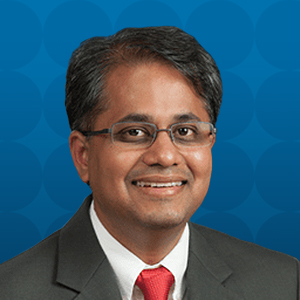Careers and planning them prudently has been the secret sauce contributing to the success of many leaders across the industry, while the second wave of covid is sweeping it’s a good time to spend some time on planning our careers in this ever-changing landscape.
The importance of well-being is second to none especially in the current Covid situation, and the unrelenting pace we are required to keep, both personally and professionally. That got me thinking of sharing my life’s insights and learnings about the merits of planning and prioritising. My last post was focused on health, and this week I wanted to share some thoughts about the next most important thing on all of our minds – our Careers.
This post is for all the Future budding leaders, Top Talent hires from campus and middle management segments. I truly hope what I am going to share now will help you plan your professional journey better.
The 3-pointer catalyst for your success are
1. Categorisation of your work list into Strategic, Tactical and Transactional
2. Importance of learning and speed of its application.
3. Adopting Change as the only Constant
The 2 other blind spots that you should NOT entertain into your professional life are:
1. Getting Complacent
2. The Attitude of “I know it all”.
Let’s focus on the 3-pointer catalyst
I recommend we categorize our work into 3 categories: Strategic, Transactional and Tactical. The percentage of our work under these 3 categories vary depending on our professional segment and is a great indicator of how productively we are spend our time in accordance to our job roles.
I would encourage you to do a quick check to see if we have action items under all these 3 categories. If the answer is a ‘yes’, then that’s a good start. If you don’t have items under all the 3 categories it is a good time to reflect to see where we are spending our time, how can we plan to bring in a balance and how can we make it a wholesome plan that would contribute to our career prospects.
Let me explain––For Campus and Early-in-Career professionals, their deliverables would be high on Transactional and Tactical as they are learning their roles and understanding their domains. When they get more senior, the percentage of time in Tactical and Transactional should gradually reduce to make way for a bit of Strategy–they should start to see and understand the big picture.
If you are in the Mid-management segment, time spent in transactions should be reduced by letting go of transactional and tactical activities to make way for a reasonable and healthy infusion of work in the Strategy category. Planning of this kind would veer towards indicating growth and involvement in leadership-level assignments. Future leaders in middle management should balance their time by gradually declining the percentage of time spent in the transactional and tactical category.
I would advise Aspiring leaders to spend more time on Strategic initiatives and taper down on tactical and transactional activities. The key here is to empower your next-in-line to solve transactions and for you to focus on collaborative decision making.
Any career enhancing reflections should be a process of informed decision making that stems from learning and development. The capability of being able to apply what has been learnt is very critical to the decision-making process. Interestingly the ability to unlearn as you climb the corporate ladder replacing conventional processes with more agile and relevant formats are key traits that organizations look for in leaders today.
The other element of career planning is not just planning to stay on top of your worklist categories. It’s about being curious and planning to get ahead to the next level. Wherever you are, think about what it would take to position yourself as the best candidate for the job at the next level.
If your worklist and your career plan can accommodate elements of Change that is constantly sweeping the industry, and if your work style is more adaptive and progressive than regressive and erratic, then I think you already have a head start in your career journey. Our workstyle and behaviors are important, but the critical component is that the change adopted is constant and has permanency to the shifts being made.
It’s important to have the right balance in all the components we discussed as it paves the way for a planned and successful career plan. It ensures we have the right mix of all that it is required for a steady and well -paced climb up the corporate ladder.
To sum it up # Categorising our work list, #Learning and Development, #Managing Change and the ability to #Balance it all are time tested components to help plan and propel your career path. Trust me when I say this – I may not be an ace in financial planning, but I am definitely a pro at Career planning.

Sundararajan Narayanan
EVP & Chief People Officer at Virtusa





